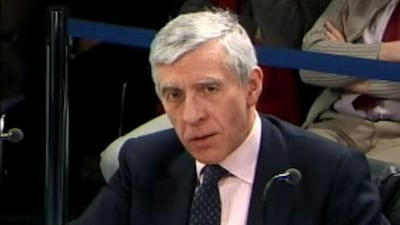Tomorrow, the British House of Commons is expected to vote on a resolution to recognise the "State of Palestine". Passage of the motion will not create a state nor will it end the Israeli occupation, but a "Yes" vote is, nevertheless, important for several reasons.
Though symbolic, passage will provide a much-needed boost to the beleaguered Palestinian people. It will send a message that the world is paying attention to their plight and recognises their rights. Passage will also provide an incentive to those in the Palestinian leadership who have embraced a non-violent, diplomatic strategy to securing their rights.
Since the behaviour of the Netanyahu government in Israel has effectively shut the door to a just solution to the conflict, Palestinians are despairing of peace. In the face of new settlement expansion plans and land confiscations, with Gaza still in shambles following the devastating Israeli assault and years of Hamas rule, and with Jerusalem on the brink of an explosion resulting from renewed Israeli provocations, success in the House of Commons will send a message to Palestinians that there is a way forward to independence and freedom.
Following the Swedish government’s recent recognition of Palestine, a British affirmation of Palestinian rights can generate momentum hopefully spurring other western governments to add their voices. All of this is, as I have said, symbolic, but a wave of symbolic victories can create a new dynamic that will empower Palestinians while fostering a much-needed debate within an increasingly isolated Israel. This vote will strengthen not only the Palestinian leadership that supports peace but the pro-peace elements in Israel as well.
As long as Israeli prime minister Benjamin Netanyahu has been able to demonstrate his ability to maintain the support of the US Congress and successfully stymie the US president and the international community, he has been in a position to sustain his hard-line government. With no price to pay for his actions, Mr Netanyahu has been able to retain control. What the Israeli left and centre have needed is pressure from the outside to force a debate on the damage Mr Netanyahu has done.
British recognition of Palestine and new European sanctions against exports from West Bank settlements will send Israelis a strong message that their government’s policies are resulting in international isolation and require a re-examination and change.
We should expect that a British vote for recognition will produce an uproar in the US Congress. A predictable group of pro-Israel members will be tripping over themselves to be the first and loudest voices denouncing the British move. When Congress reconvenes after the November elections, there may even be those who will propose a host of silly bills – but it will all be sound and fury, signifying nothing. They can’t cut aid to the United Kingdom, as some might say is mandated by legislation that calls for terminating all US assistance to entities that recognise a Palestinian State. This was done, with near devastating results, to Unesco. In this case, however, they can’t cut aid, because there simply isn’t any aid to cut. And they certainly can’t sever ties with America’s most important trans-Atlantic ally, especially now that the countries are jointly engaged in combat against ISIL.
So, with no recourse but to bellow, the bizarrely obstructionist Congress may find itself increasingly isolated, especially should other European nations follow suit and also call for recognition of Palestine. This could have the salutary effect of producing a much-needed American debate on Palestinian rights.
There is another reason why a British “Yes” vote is important. It was nearly a century ago that the British government issued the infamous Balfour Declaration and signed the Sykes-Picot agreement. With the former they committed to give Palestine to the Zionist movement to establish a Jewish homeland. With the latter they designed to carve up the newly liberated Arab East between themselves and the French.
Balfour was a colonialist of the first order. When US president Woodrow Wilson raised some concerns with the British scheme and commissioned a survey of Arab opinion to determine their aspirations, Balfour responded: “In Palestine, we do not propose even to go through the form of consulting the wishes of the present inhabitants of the country ... Zionism, be it right or wrong, good or bad, is ... of far profounder import than the desire and prejudices of the 700,000 Arabs who now inhabit that ancient land.”
Reflecting on the fateful decisions made a century ago, former British foreign secretary Jack Straw said in 2002: “A lot of the problems I have to deal with now are a consequence of our colonial past. The Balfour declaration and the contradictory assurances which were being given to the Palestinians in private at the same time as they were being given to the Israelis – again, an interesting history for us but not an entirely honourable one.”
And so, should the House of Commons do the right thing and pass the motion recognising Palestine, it will be taking an important step in regaining that lost honour. It will also be setting in motion a positive dynamic that could create new conditions to foster peace.
All this can happen. But first, the motion must pass.
Dr James Zogby is the president of the Arab American Institute
On Twitter: @aaiusa


